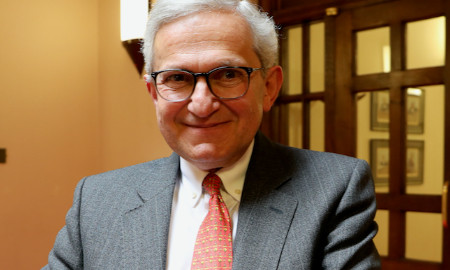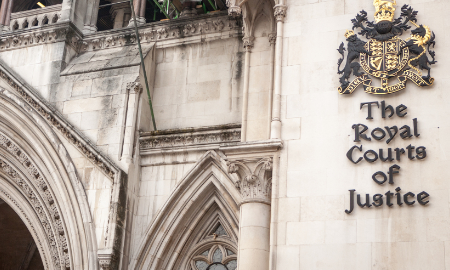Sign up for our free daily newsletter
YOUR PRIVACY - PLEASE READ CAREFULLY DATA PROTECTION STATEMENT
Below we explain how we will communicate with you. We set out how we use your data in our Privacy Policy.
Global City Media, and its associated brands will use the lawful basis of legitimate interests to use
the
contact details you have supplied to contact you regarding our publications, events, training,
reader
research, and other relevant information. We will always give you the option to opt out of our
marketing.
By clicking submit, you confirm that you understand and accept the Terms & Conditions and Privacy Policy
The Court of Appeal has handed down a much-anticipated ruling in the case of Churchill v Merthyr Tydfil County Borough Council, in litigation concerning Japanese knotweed, stating that courts in England and Wales can order parties to engage in alternative dispute resolution (ADR), so long as their ability to seek a judicial hearing after that remains unrestricted.
Sir Geoffrey Vos, master of the rolls and the head of civil justice in England and Wales, delivered the ruling alongside Dame Sue Carr, the lady chief justice, and deputy head of civil justice Lord Justice Birss.
The ruling, which has been welcomed by ADR bodies as well as the Law Society of England and Wales and the Bar Council, allows courts to stay proceedings to order parties to engage in ADR, provided that doing so does not impair the “very essence” of the right to proceed to a judicial hearing and is proportionate to settling the dispute quickly and fairly at a reasonable cost, said Vos.
Notably, for many, the court confirmed that comments made by Lord Justice Dyson in Halsey v Milton Keynes General NHS Trust that the “compulsion of ADR would be regarded as an unacceptable constraint on the right of access to the court” and a violation of article 6 of the European Convention on Human Rights, which guarantees the right to a fair trial, were obiter and therefore not binding on the lower courts.
Referring to Halsey and the Civil Justice Council’s June 2021 report on compulsory ADR, which he commissioned, Vos commented: “Experience has shown that it is extremely beneficial for the parties to disputes to settle their differences cheaply and quickly. Even with initially unwilling parties, mediation can often be successful.”
However, the courts should take a flexible approach that takes account of the individual circumstances of the case, said Vos, who emphasised that it should be up to individual judges to determine whether a stay of proceedings for non-court-based dispute resolution was appropriate in each case. As to which method of ADR should be used, that was “a matter of the court’s discretion, to which many factors will be relevant”.
The Civil Mediation Council (CMC), the Chartered Institute of Arbitrators (CIArb), and the Centre of Effective Dispute Resolution (CEDR) all intervened in the case and were represented on a pro bono basis as did the Law Society and Bar Council.
Ian Gatt KC and Elaina Bailes of Stewarts instructed Edwin Glasgow CBE KC and Kelly Stricklin-Coutinho from 39 Essex Chambers for the ADR interveners, while the Law Society was represented by Landmark Chambers’ Rupert Cohen, and the Bar Council, led by its chair, Nick Vineall KC, of 4 Pump Court, and 11 KBW’s Amy Rogers.
Merthyr Tydfil County Council was represented by its in-house lawyers, with Michel Kallipetis KC and Maya Chilaeva of Quadrant Chambers and Iain Whitwick of Unity Street Chambers.
Churchill, advised by McDermott Smith Solicitors, was represented by Robert Weir KC, of Devereux Chambers, and Tom Carter, of Ropewalk Chambers.
Justin Bates and Tom Morris of Landmark Chambers, instructed by Anthony Gold partner Giles Peaker, appeared for the Housing Law Practitioners Association while Fiver Paper’s Elizabeth England, instructed by Capsticks, appeared for the Social Housing Law Association.
Email your news and story ideas to: [email protected]










